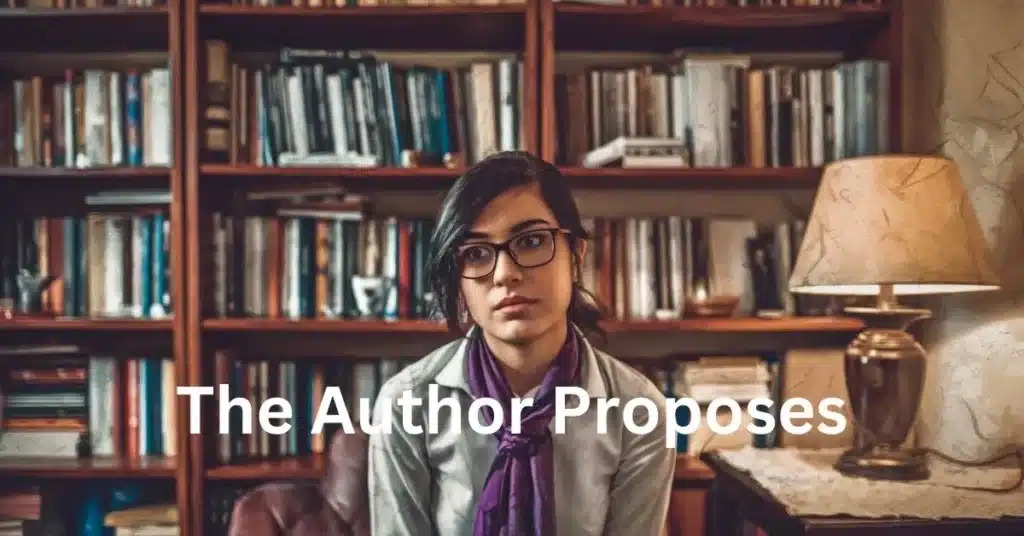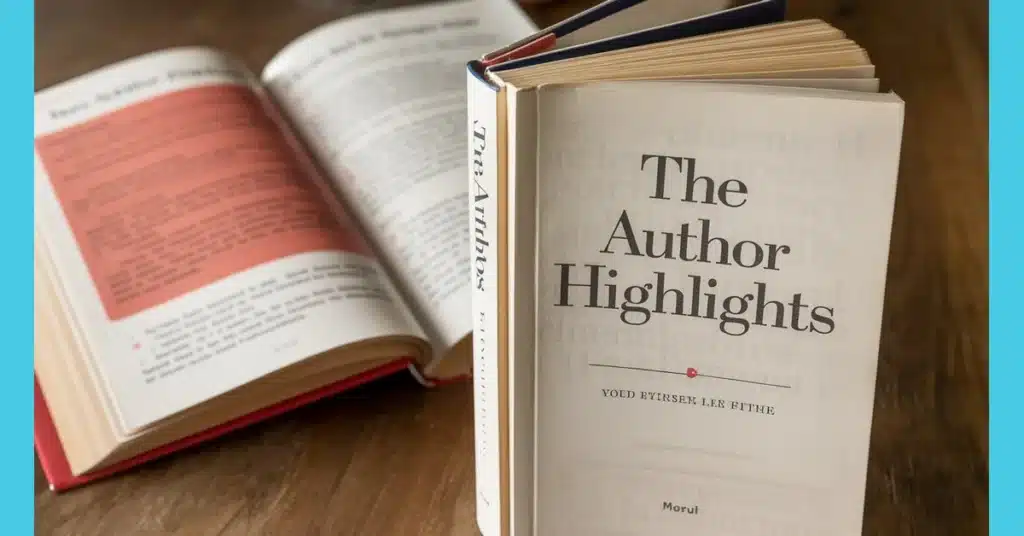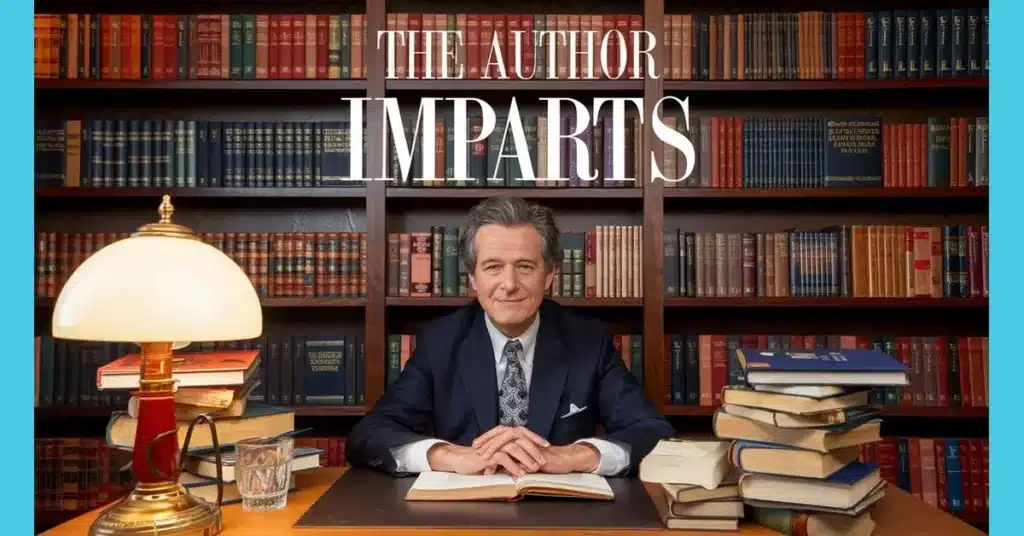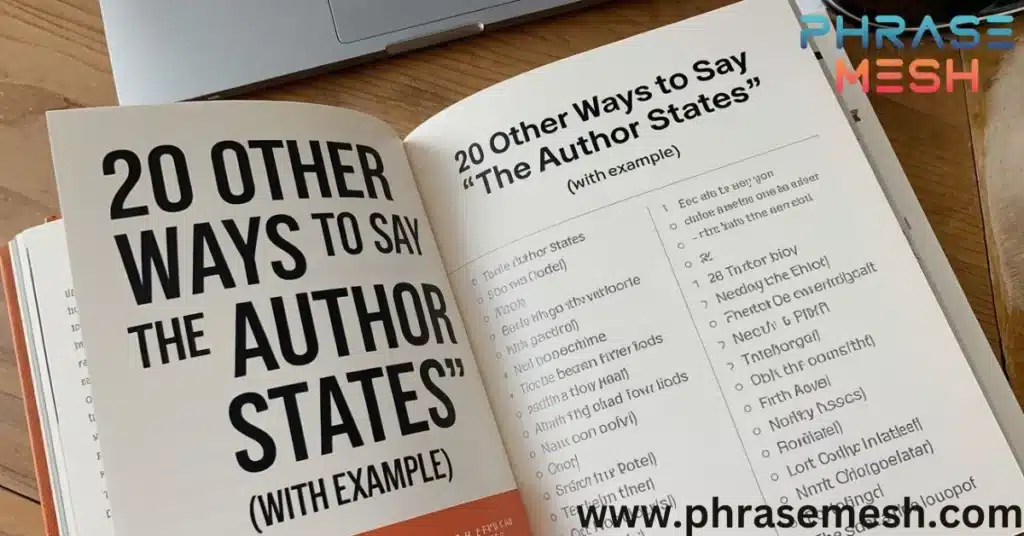In academic and professional writing, it’s common to refer to an author’s ideas, but constantly repeating “The author states” can make your writing feel repetitive and dull. Finding varied and engaging ways to introduce an author’s points can enhance the flow and clarity of your work. While “The author states” is useful, having alternatives can make your writing more dynamic.
In this article, we will explore 20 different ways to say “The author states,” giving you fresh ways to express this idea. Whether you’re writing essays, reports, or articles, these alternatives will help you avoid overusing “The author states” and keep your content engaging. Keep reading for 20 creative ways to say “The author states,” along with examples!
Is It Okay to Say “The Author States”?
Yes, it’s okay to say “the author states,” but it’s not always the best choice. While this phrase is clear and straightforward, it can become repetitive and dull if overused. Variety in language keeps writing engaging and can convey nuanced meanings.
Alternatives like “argues,” “suggests,” or “emphasizes” can add depth to your analysis by highlighting the author’s tone or intent. However, “the author states” remains appropriate in contexts where a neutral, direct introduction to a quote or idea is needed. The key is to balance clarity with engaging language, using “states” sparingly alongside other verbs.
What to Say Instead of “The Author States”
Here are the 20 ways to say “The author states” in bullet points:
- The author claims
- The author argues
- The author suggests
- The author indicates
- The author proposes
- The author observes
- The author notes
- The author affirms
- The author declares
- The author points out
- The author contends
- The author emphasizes
- The author posits
- The author asserts
- The author highlights
- The author maintains
- The author illustrates
- The author articulates
- The author conveys
- The author imparts
These alternatives offer a range of nuanced ways to introduce an author’s ideas, helping to vary your writing style and convey specific shades of meaning. Each verb carries its own connotation, allowing you to accurately represent the author’s tone and intent in your analysis or discussion.
Remember, the key to effective writing is choosing the right word for the right context. Consider the author’s approach and the strength of their statement when selecting which alternative to use. This attention to detail will elevate your writing and demonstrate a deeper engagement with the material you’re discussing.
1. The Author Claims

When an author makes an assertion without providing immediate proof, you can use “claims” to introduce their statement. It’s a bit more neutral than “states” and suggests that the point might be debatable.
Example scenario: Imagine you’re writing a review of a controversial history book for your university’s student newspaper.
“In her groundbreaking work on the American Revolution, Dr. Sarah Thompson claims that the Boston Tea Party was less about taxation and more about protecting smuggling operations. This bold assertion challenges conventional wisdom and has sparked heated debates among historians.”
2. The Author Argues
Use “argues” when the writer is making a case for a particular point of view or trying to persuade the reader of something. This verb implies that the author is presenting evidence or reasoning to support their position.
Example scenario: You’re summarizing a scientific paper for a class presentation.
“In his latest paper published in Nature, Dr. Ramirez argues that climate change is accelerating at a rate far beyond previous predictions. He presents compelling data from Arctic ice cores and satellite imagery to support his alarming conclusion.”
3. The Author Suggests
When an author puts forward an idea more tentatively or as a possibility rather than a definite fact, “suggests” is a great alternative. It’s softer than “states” and implies that the author is open to other interpretations.
Example scenario: You’re writing an email to your book club about the novel you’re currently reading.
“Hey book lovers!
I’m halfway through ‘The Midnight Library’ by Matt Haig, and it’s got me thinking. Haig suggests that our regrets shape our perception of alternate life paths. What do you all think about this? Does it ring true in your own experiences?
Can’t wait to discuss this further at our next meeting!
Best, Alex”
4. The Author Indicates
“Indicates” is a good choice when the author is pointing towards a conclusion without stating it outright. It’s often used when the writer is inferring something from evidence or observations.
Example scenario: You’re writing a report on a market research study for your marketing class.
“The comprehensive survey conducted by MarketPulse indicates a significant shift in consumer preferences towards eco-friendly products. This trend is particularly pronounced among millennials and Gen Z consumers, suggesting a potential goldmine for businesses willing to invest in sustainable practices.”
5. The Author Proposes

When an author puts forward a new idea, theory, or plan of action, “proposes” is an excellent verb to use. It suggests that the author is offering something for consideration rather than stating an established fact.
Example scenario: You’re summarizing a TED Talk for your public speaking class.
“In her thought-provoking TED Talk, urban planner Jane Chen proposes a radical redesign of city spaces to combat loneliness and foster community connections. Her innovative approach involves creating ‘social hubs’ in unexpected places, from bus stops to laundromats.”
6. The Author Observes
Use “observes” when the writer is noting or commenting on something they’ve seen or experienced. It’s particularly useful when discussing descriptive or reflective writing.
Example scenario: You’re writing a literary analysis of a travel memoir for your creative writing course.
“In ‘Eat, Pray, Love’, Elizabeth Gilbert observes that the Italian approach to pleasure is fundamentally different from the American one. She writes, ‘The difference between how Americans and Italians approach pleasure is that we view it as a reward, while they see it as a birthright.'”
7. The Author Notes
Similar to “observes,” “notes” is used when the author is pointing out a fact or making a comment. It’s slightly more formal and can be used in academic or professional writing.
Example scenario: You’re drafting an email to your team about a new company policy.
“Subject: Update on Remote Work Policy
Dear Team,
I hope this email finds you well. I wanted to bring your attention to the recent company-wide memo on our evolving remote work policy.
The HR Director notes that while we’re maintaining a flexible approach, there’s an expectation for all team members to be present in the office at least two days a week. This is aimed at fostering collaboration and maintaining our strong team culture.
Let’s discuss how we can make this work for our department in our next team meeting.
Best regards, Jamie”
8. The Author Affirms
When a writer is stating something positively or with confidence, “affirms” is a powerful alternative. It suggests that the author is reinforcing or confirming a belief or statement.
Example scenario: You’re writing a blog post about a self-help book.
“In her bestselling book ‘Daring Greatly,’ Brené Brown affirms that vulnerability is not a weakness, but our most accurate measure of courage. This powerful assertion challenges societal norms and offers a fresh perspective on emotional strength.”
9. The Author Declares
“Declares” is a strong verb that implies the author is making a clear, often formal statement. It’s useful when the writer is announcing something important or taking a definitive stance.
Example scenario: You’re summarizing a political speech for a civics class assignment.
“In her inaugural address, President Rodriguez declares her commitment to tackling climate change as her administration’s top priority. She outlines an ambitious plan to transition the country to 100% renewable energy within the next decade, signaling a major shift in national policy.”
10. The Author Points Out

Use “points out” when the writer is drawing attention to a specific fact or detail. It’s particularly useful when the author is highlighting something that might not be immediately obvious to the reader.
Example scenario: You’re writing a review of a documentary film for your school’s online magazine.
“In his latest documentary ‘Ocean’s Whisper,’ renowned marine biologist Dr. Kai Chen points out that the decline in whale populations has far-reaching consequences beyond just the species itself. He demonstrates how these marine giants play a crucial role in ocean ecosystems, from maintaining fish populations to sequestering carbon.”
11. The Author Contends
“Contends” implies that the author is asserting something in the face of actual or potential disagreement. It’s a great choice when discussing controversial or debated topics.
Example scenario: You’re writing a literature review for a sociology paper.
“In his provocative book ‘The Digital Divide,’ Dr. Marcus Wei contends that the increasing reliance on technology in education is widening the gap between socioeconomic classes. This bold assertion challenges the widely held belief that digital tools democratize learning.”
12. The Author Emphasizes
Use “emphasizes” when the writer is stressing a particular point or idea, giving it special importance in their work.
Example scenario: You’re summarizing a business strategy book for a management course.
“In ‘Good to Great,’ Jim Collins emphasizes that great companies don’t focus on what to do to become great; they focus equally on what not to do and what to stop doing. This counterintuitive approach challenges traditional thinking about business growth and success.”
13. The Author Posits
“Posits” is a more formal alternative, often used in academic writing. It suggests that the author is putting forward an idea or theory for consideration.
Example scenario: You’re writing an email to your research team about a new scientific paper.
“Subject: Interesting New Theory on Dark Matter
Hello team,
I’ve just finished reading Dr. Amelia Chang’s latest paper in Astrophysical Journal. She posits a novel theory about the nature of dark matter, suggesting it might be composed of primordial black holes formed in the early universe.
This could potentially explain some of the anomalies we’ve been struggling with in our own research. I think it’s worth discussing in our next team meeting.
What are your thoughts?
Best, Dr. Johnson”
14. The Author Asserts
“Asserts” is a strong verb that implies the author is stating something with confidence, often without providing immediate proof.
Example scenario: You’re writing a book review for a popular science magazine.
“In ‘The Code Breaker,’ Walter Isaacson asserts that CRISPR technology will revolutionize medicine in the coming decades. He paints a vivid picture of a future where genetic diseases are easily curable, though he also grapples with the ethical implications of such advancements.”
15. The Author Highlights

Use “highlights” when the writer is drawing special attention to a particular point or aspect of their subject.
Example scenario: You’re writing a summary of a TED Talk on education reform.
“In her inspiring TED Talk, education innovator Priya Sharma highlights the transformative power of project-based learning. She shares compelling stories of students from underserved communities who have thrived when given the opportunity to tackle real-world problems in the classroom.”
16. The Author Maintains
“Maintains” suggests that the author holds a particular view consistently, often in the face of challenge or over time.
Example scenario: You’re writing an analysis of a long-running debate in psychology.
“Despite recent criticisms, Dr. Howard Gardner maintains that his theory of multiple intelligences is still relevant in understanding human cognitive abilities. In his latest book, he addresses his critics while reaffirming the core principles of his groundbreaking work.”
17. The Author Illustrates
“Illustrates” is perfect when the writer is using examples, anecdotes, or data to make a point clear or vivid.
Example scenario: You’re summarizing a chapter from an economics textbook.
“In Chapter 5, Professor Kim illustrates the concept of opportunity cost with a relatable scenario involving a student choosing between a part-time job and extra study time. This practical example helps demystify an often misunderstood economic principle.”
18. The Author Articulates
Use “articulates” when the writer is expressing a complex idea clearly and effectively.
Example scenario: You’re writing a review of a philosophical essay for a college publication.
“In her essay ‘The Ethics of AI,’ Dr. Lydia Chen articulates a nuanced view on the moral implications of artificial intelligence. She deftly navigates the complex interplay between technological advancement and human values, offering a framework for ethical AI development.”
19. The Author Conveys
“Conveys” is useful when describing how an author communicates ideas or feelings, especially when done in a particular manner or style.
Example scenario: You’re writing an email to your book club about a memoir you’ve just finished.
“Hey everyone,
I just finished ‘Educated’ by Tara Westover, and wow, what a read! Westover conveys the complexity of her upbringing with such raw honesty and vivid detail. Her writing style really pulls you into her world, making you feel like you’re right there with her on that Idaho mountain.
I’m excited to hear your thoughts on it at our next meeting. Did anyone else feel as emotionally invested as I did?
Happy reading! Alex”
20. The Author Imparts

“Imparts” suggests that the author is sharing knowledge or wisdom, often with a sense of authority or experience.
Example scenario: You’re writing a review of a masterclass on creative writing.
“In her online masterclass, bestselling author Margaret Atwood imparts invaluable advice on crafting compelling characters. Drawing from her decades of experience, she offers aspiring writers a treasure trove of techniques for bringing fictional personalities to life on the page.”
Expanding Your Writing Horizons
And there you have it – ten more vibrant alternatives to “The Author States”! With these additional options, you now have a robust set of 20 different ways to introduce an author’s ideas or arguments beyond just saying “The Author States.” This expanded vocabulary will not only make your writing more engaging but also allow you to convey subtle nuances in how authors present their thoughts.
Remember, great writing is about precision and variety. Each of these verbs offers a fresh alternative to “The Author States” and carries its own shade of meaning, allowing you to accurately represent the author’s tone and intent. Are they asserting a bold claim or merely suggesting a possibility? Are they maintaining a long-held position or articulating a new perspective? By choosing the right verb instead of defaulting to “The Author States,” you’re not just avoiding repetition – you’re demonstrating a deep engagement with the text and a nuanced understanding of the author’s approach.
This level of analysis, even when shifting from “The Author States” to more diverse phrases, can elevate your writing from good to outstanding. As you incorporate these alternatives into your work, you’ll likely find that your own thinking becomes more nuanced. You’ll start to pick up on the subtle ways authors express their ideas, going beyond the standard “The Author States” approach, making you a more perceptive reader and a more effective writer.
So go ahead, give these new phrases a spin in your next essay, report, or review. Replace “The Author States” and watch your writing evolve. Your writing will thank you for it! And who knows? You might just find that this attention to language, moving beyond “The Author States,” makes the writing process more enjoyable and rewarding.
Keep exploring, keep experimenting, and most importantly, keep writing. After all, every great writer started exactly where you are now – looking for ways to make their words sing on the page and to move past just “The Author States”!





